I love all forms of vinegar, but in particular, I was curious as to whether balsamic vinegar was keto-friendly. After all, balsamic vinegar is a little different than your other vinegar varieties (white, apple cider, red wine, etc.). I did a bit of research on balsamic vinegar, and here's what I came up with.
Certain balsamic vinegar brands are acceptable to use while following a keto diet because some brands, more than others, have fewer added sugars. Depending on the brand, one tablespoon will contain between 3 and 6 grams of net carbohydrates, with some as high as 10 grams.
In this article, I'll dive a little more into keto and why you may or may not want to include balsamic vinegar.
We'll also go over what precisely balsamic vinegar is, whether there's a difference in balsamic vinaigrette, what makes balsamic vinegar different from regular vinegar, and maybe even throw in some keto-friendly recipes.
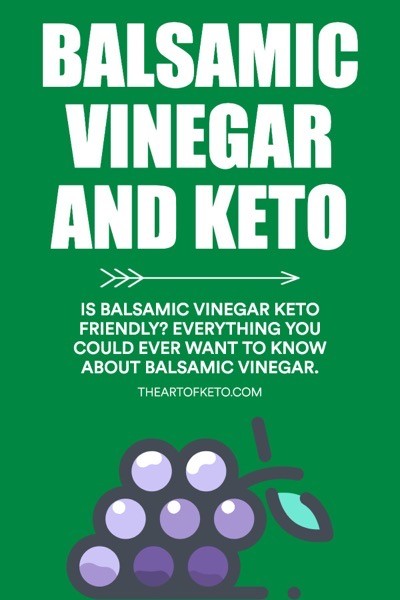
Table of Contents
Is Balsamic Vinegar Keto Friendly?
There is no black and white answer when it comes to balsamic vinegar and whether it's “keto-friendly.”
Like many foods, one website may tell you to stay away from a particular food, and the next one may tell you it's ok to eat.
That's why here at The Art Of Keto, I like to educate you on the fundamentals.
By having a better understanding of HOW and WHAT will kick you out of ketosis will allow you to make informed decisions as to whether you should stay away from particular foods.Balsamic vinegar is one such food that falls in the gray area of “keto-friendliness,” for lack of a better term.
What Exactly Makes A Food Keto Friendly?
The goal of a ketogenic diet is to limit carbohydrates enough that our body enters a metabolic state referred to as ketosis.
By limiting carbohydrates from the diet, our body is forced to rely on fats and ketones as its primary fuel source.
In general, people find that anywhere between 20 to 50 grams of net carbs per day is low enough to enter and maintain this state of ketosis. Highly active people, including athletes, find that they may be able to eat upwards of 100 to 150 grams of net carbs and achieve and maintain ketosis.
If you look on the back of a nutrition label, to calculate net carbs, you would take the total amount of carbohydrates and subtract any fiber or sugar alcohols. Therefore, if an item had 10 grams of carbohydrates, but four came from fiber, and three came from sugar alcohols, you would be left with 3 grams of net carbs.
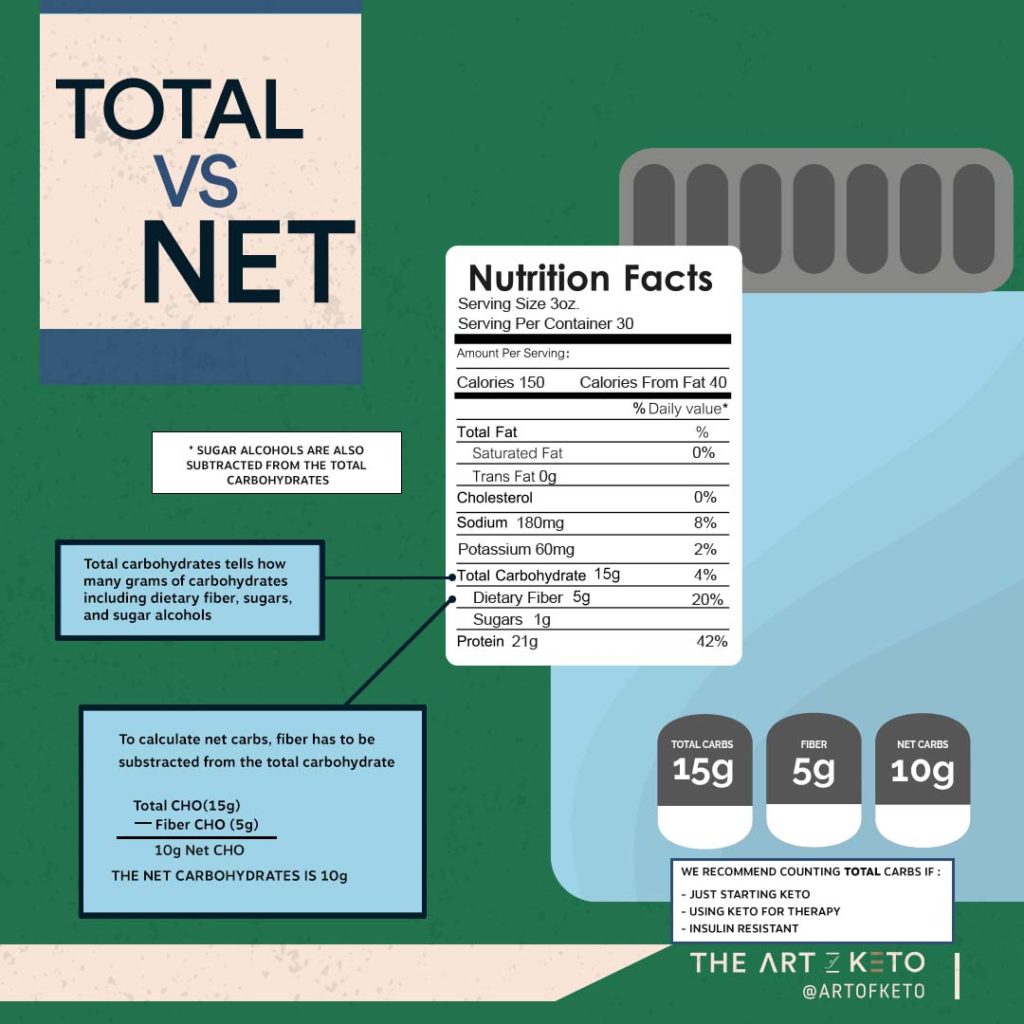
Now, here's where people get semi-confused about what makes something keto-friendly. As long as you stay within or under your carbohydrate threshold (whatever that may be for you), you should have no problem getting in and maintaining a state of ketosis.
Take, for example, Suzy, who eats no more than 30 grams of net carbs, those 30 grams of net carbs can technically be filled with anything as long as she stays under that amount.
While Suzy would benefit from filling those carbohydrates from nutrient-dense sources that would offer more micronutrients and satiety, it doesn't hurt to fill it with other foods, even things with sugar, once in a while.
The only caveat, if you're like me and like BIG portions of items, you likely won't be able to eat the amount you want. This also means the more balsamic vinegar you use, or if using a higher carb variety, the less of everything else you'll be able to fit in.
You should think of your net carbs like a budget.
If you had $100 to spend on groceries for the week, while you can buy 2 lbs of that USDA Prime Filet for $40/lb, it doesn't necessarily mean you should.
But you could.
Including certain foods can also be a slippery slope for some people, so be mindful if that's you.
So Can I Eat Balsamic Vinegar On Keto?
Now that you understand what makes a food keto friendly, as long as you stay under your carb threshold, you can fit in small amounts of balsamic vinegar if you choose to do so.
Seeing how different brands of balsamic vinegar range in the number of carbohydrates they have per 1 tbsp serving, you'll get more bang for your buck by sticking with a brand that has fewer carbs per serving.
Take, for example, a popular brand, Trader Joes, there brand of balsamic vinegar only has 3 grams of net carbohydrates per tablespoon. This other brand of balsamic vinegar has three times as much with 9 grams of net carbs per tablespoon.
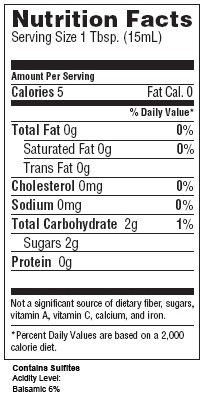
I've seen other common store brands with only 1-2 grams of net carbs per tablespoon. Take this Star brand of balsamic vinegar; it only has 2 grams of net carbs per tablespoon.
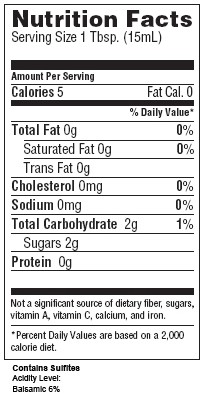
While I like the Trader Joes brand of balsamic vinegar or most things for that matter, it may not fit your taste buds.
Find a balsamic vinegar that ranges on the lower end of the net carb scale that you enjoy and have some in moderation. Just remember, a tablespoon is not much, and can quickly turn into 3 or 4 times the amount if you have a heavy hand.
Use a measuring spoon or a food scale to ensure you're not using more than you're supposed to.
How Many Carbs In Balsamic Vinegar?
Most brands of balsamic vinegar will vary between 3 to 6 net grams of carbohydrates per tablespoon. Some brands of balsamic vinegar will be as low as 1 to 2 net grams and high as 7-12 net grams per tablespoon.
Obviously, the higher the number of carbohydrates per serving, the less keto-friendly that particular brand will be.
However, just because it has 7-12 grams of net carbohydrates per serving doesn't mean you can have a splash of it once in a while.
But who only uses a splash?
Where Do The Carbs In Balsamic Vinegar Come From?
Balsamic vinegar, unlike other forms of vinegar, has some carbohydrates usually in the form of sugars.
Balsamic vinegar is made from grapes, where it's then boiled down and fermented to concentrate the flavors.
The carbs in balsamic vinegar come from the grapes, similar to that of wine. However, a lot of sugar from the grapes is lost during the fermentation process.Is Balsamic Vinegar High In Carbs?
Traditional balsamic vinegar will have more carbohydrates than your modern commercial balsamic vinegar due to its purity in nature, and they're also much more expensive.
Modern commercial balsamic vinegar, the one you'll likely find at the grocery store, mix concentrated grape must with wine vinegar. Mixing the two allows for higher volumes, speeds up the acidification process, and also cuts down on the sugar content.
What Is Balsamic Vinegar?
Balsamic vinegar is created using an Italian vinegar making process dating back over 900 years ago.
Considered a wine vinegar, balsamic is not a wine vinegar at all, at least the traditionally made balsamic vinegar.
Traditional balsamic vinegar is made with a single ingredient, grape must, which is the sweet juice of freshly pressed sweet white Trebbiano grapes.
The grapes are then boiled down to a dark syrup, fermented and acidified, then aged in wood barrels for a minimum of 12 years. As the vinegar ages, moisture evaporates, and you're left with the thick vinegar and concentration of flavors.
Modern balsamic vinegar, the ones you come across at the local grocery store, combine grape must and wine vinegar. By combining the two, manufacturers can speed up the acidification process from a minimum of 12 years to as little as two months.
Different Kinds Of Balsamic Vinegar
Now that you have a brief understanding of balsamic vinegar, what are the differences between them?
Balsamic Vinegar of Modena PGI
You'll find most balsamic vinegar is imported from the Modena region of Italy, that's because traditional balsamic is usually produced in the provinces of Modena or Reggio.
The PGI identification stands for Protected Geographic Indication, and it conforms to the European Union production and regulations.
Traditional Balsamic Vinegar
This is the small-batch, craft balsamic vinegar that has been aging for a minimum of 12 years in wood barrels.
Traditional balsamic vinegar is similar to wine in that it can easily cost you $50 or $200 for a small bottle.
Balsamic Vinegar
If the balsamic vinegar has no mention of Modena on the label, it may or may not have come from Italy. Generally, if it only says balsamic vinegar, it may be good quality or possibly imitation balsamic.
By imitation balsamic, this means the vinegar doesn't have grape must and usually artificially sweetened and has added thickening agents. Think of imitation balsamic similar to how you can purchase imitation vanilla vs. pure vanilla extract.
White Balsamic
White balsamic is similar to regular balsamic vinegar, but white balsamic will carry a light golden color to it.
Balsamic Glaze
A slightly more thick and syrupy version of balsamic vinegar that usually has added sweeteners and/or thickeners
What's The Difference Between Balsamic Vinegar And Regular Vinegar?
Unlike balsamic vinegar, which is traditionally made from grapes, white vinegar is essentially acetic acid (~5-10%) and water (~90-95).
Acetic acid is what gives vinegar that classic vinegar taste and smell.
However, In the U.S., vinegar made for human consumption is required to be fermented naturally, by bacteria.
Modern-day “distilled vinegar,” which isn't distilled (in the U.S. at least), mainly uses ethanol imported from France made from sugar beets.
Vinegar may also be made from anything with sugar, much like balsamic vinegar explained above. For this reason, we have many different varieties of vinegar:
- Apple cider vinegar
- Red wine vinegar
- White wine vinegar
- Rice vinegar
- Sherry Vinegar
Is Vinegar Keto Friendly?
Balsamic vinegar is kind of on its own when it comes to vinegar.
Other vinegars, including apple cider vinegar, white vinegar, red wine vinegar, and white wine vinegar are essentially carbohydrate-free.So to answer your question, almost all vinegar except for balsamic vinegar will generally have zero carbohydrates and should be perfectly acceptable on a ketogenic diet.
Of course, it still wouldn't hurt to see if there are any added sugars on the label.
How Many Carbs Are In White Balsamic Vinegar
I know it may be confusing, but white balsamic vinegar is essentially the same as balsamic vinegar, just with a light golden color.
White balsamic vinegar and the traditional dark-colored balsamic vinegar is made almost the same way.
The only difference between white balsamic and the darker varieties is that white balsamic is not cooked as long, nor aged as long, which keeps it from reaching that dark color we associate with most balsamic vinegar.
The lack of color in white balsamic causes confusion about the sugar content, but white balsamic vinegar contains similar amounts of sugar/carbohydrates as balsamic vinegar.
Similar to the “regular” balsamic vinegar, different brands will range in carbohydrates with most between 3 grams per tablespoon and 10 grams of carbs per tablespoon.
Is Balsamic Glaze Keto Friendly?
So now you might be wondering, can I eat balsamic glaze on keto? Balsamic glaze is just a more concentrated version of balsamic vinegar made by gently heating and causing excess water to evaporate.
The result of the gentle heating is a darker, thicker, and usually richer tasting version of the balsamic vinegar.
Many of the balsamic glazes you may find at your local grocery are filled with added sugars in the cooking process, but not always the case.
Make sure you check the ingredient list and nutrition label to ensure no added sugars have been used in the cooking process.
Using Trader Joes as an example, while their balsamic vinegar contains 3 grams of net carbs per tablespoon, their balsamic glaze includes 10 grams of net carbs per tablespoon due to the addition of concentrated grape juice.
While you could potentially fit in 10 grams of net carbs in your daily diet, it's probably not the best use of your carbs… unless you're dying for some balsamic glaze.
Again, not the best use of, but not totally out of the question.
Is There Sugar In Balsamic Vinegar
While I haven't seen any balsamic vinegar with any added sugars, that doesn't mean that there aren't any in existence.
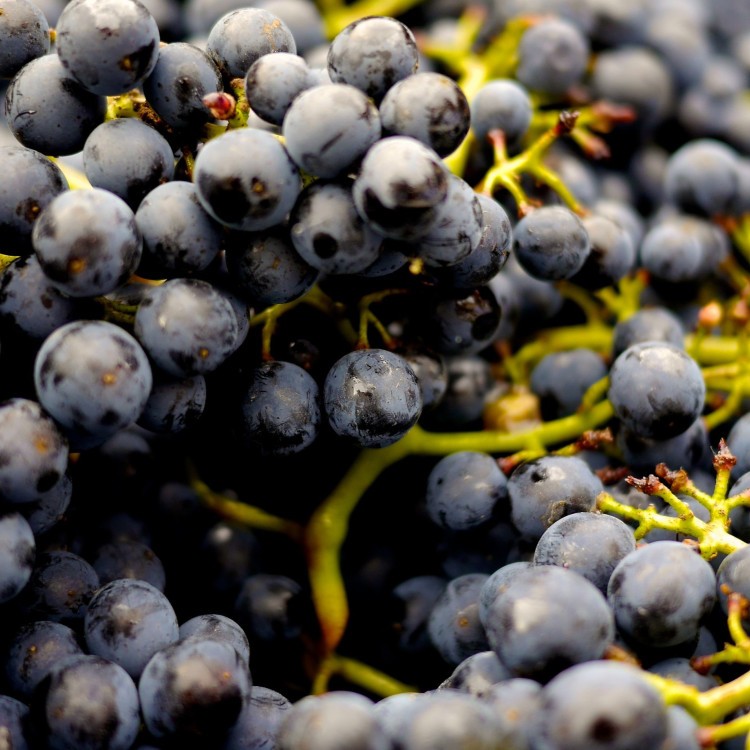
As mentioned previously, if a product only says “balsamic vinegar” on the label, there is a possibility it may be an imitation balsamic. This means that the product was artificially created to give it the same balsamic vinegar taste, but through added sweeteners, thickeners, and flavors.
While imitation balsamic is made from vinegar (wine, white, or cider), they're produced to emulate the texture and flavor of balsamic without going through the balsamic vinegar making process.
If you happen to come across a very cheap bottle of balsamic vinegar, the chances are that it may be imitation balsamic.
Is There Carbs In Balsamic Vinaigrette?
While there are carbohydrates in balsamic vinaigrette, you'd be glad to know that there are FEWER carbs per serving than regular balsamic vinegar.
This is due to balsamic vinaigrette being a blend of balsamic vinegar, but with other spices, possibly other forms of vinegar, and usually an oil added in the mix.
So while balsamic vinaigrette has fewer carbs per serving, it will usually have more total calories due to the inclusion of oil, such as olive oil or avocado oil.
On average, one tablespoon of balsamic vinaigrette will contain 1-2 grams of net carbs per tablespoon.When it comes to a balsamic vinaigrette, I like Primal Kitchen's Balsamic Vinaigrette. If I'm looking to drop some weight, I enjoy Walden Farm's balsamic vinaigrette which is artificially sweetened, but has ZERO carbs and ZERO calories!
If you're interested in different dressings, syrups, and sauces that are zero carbs or zero calories, check out my article on Walden Farms and Keto.
- Check prices and reviews of Primal Kitchen Balsamic Vinaigrette
- Check prices and reviews of Walden Farms Balsamic Vinaigrette
Some Keto Friendly Uses for Balsamic Vinegar
So now that we've gone over just about everything related to balsamic vinaigrette, what are some great uses for it on a ketogenic diet?
When I think of balsamic vinegar, I usually think of three things:
- Caprese salad
- Bacon and Brussel sprouts
- As a vinaigrette on salads
- Drizzled on berries (blueberries, strawberries, blackberries)
Ok, I that was four.
Some Keto Friendly Recipes Using Balsamic Vinegar
Just to offer you some inspiration in case you want to dabble with a little balsamic vinegar here and there, here are some recipes sure to tickle your tastebuds.
Keto Balsamic Glazed Meatloaf
Bet you didn't think of meatloaf when you had balsamic vinegar in mind… or did you?
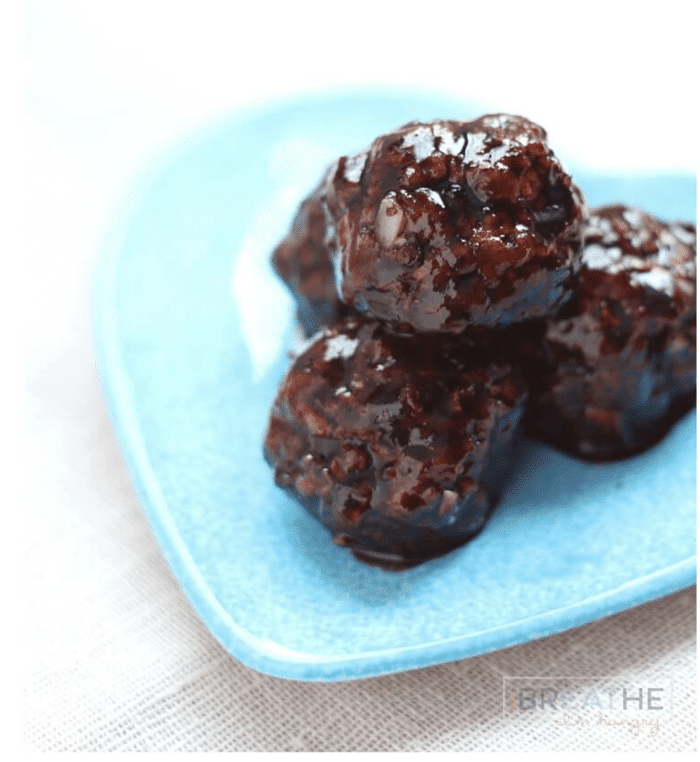
Photo and recipe courtesy of I Breathe I'm Hungry
Crispy Pan-Fried Brussel Sprouts with Bacon and Balsamic Vinegar
Pork or turkey bacon and Brussel sprouts have to be my favorite use for balsamic vinegar easily.
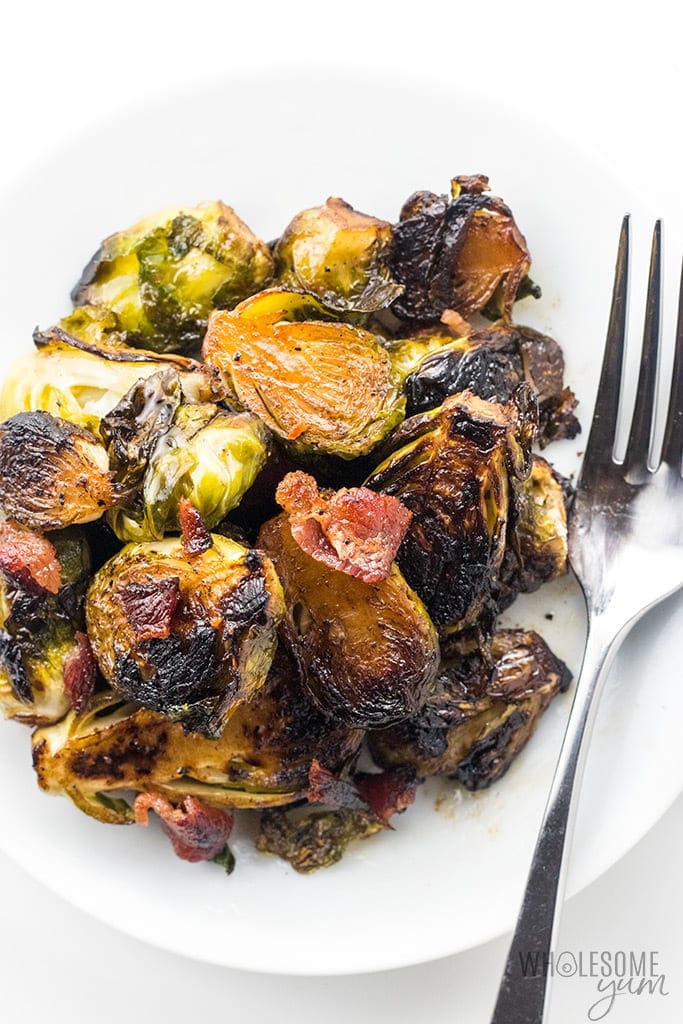
Photo and recipe courtesy of Wholesome Yum
Balsamic Shallot Vinaigrette
Want to make your own balsamic vinaigrette? Check this recipe out.
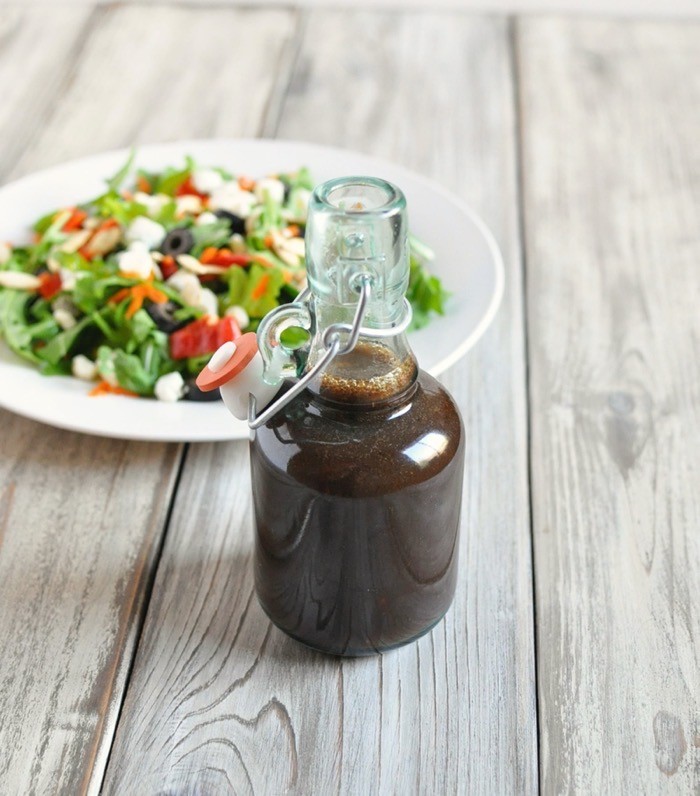
Photo and recipe courtesy of Peace, Love, And Low Carb
The Takeaway About Whether Balsamic Vinegar Is Keto Friendly
Balsamic vinegar does contain carbs, relative to other types of vinegar. While you can manage to fit a little bit in a while following a ketogenic diet, you should do so in moderation.
A single tablespoon of balsamic vinegar may have anywhere from 2 grams of net carbs to 10 grams of net carbs, so make sure you look at the nutrition label.
On the other hand, most other forms of vinegar contain no carbohydrates or calories.
If you're looking for a zero carb and zero-calorie alternative, I would highly recommend Walden Farms brand products and their balsamic vinaigrette.
